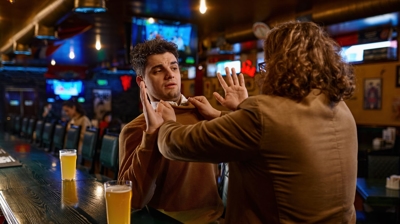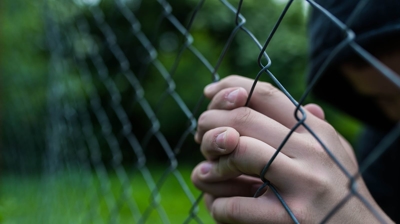
Mesa Juvenile Crimes Lawyer
Offering Knowledgeable Guidance to Minors Facing Criminal Charges
While the juvenile system in Arizona is largely focused on rehabilitating minors and getting them back on track rather than punishing them, a juvenile crime conviction can affect a young person’s future for many years to come and is not something to be taken lightly. Laws governing juvenile crimes are different from those governing adult crimes. For this reason, it is important to work with a juvenile crimes attorney in Mesa who knows how to successfully defend your case.
Our firm has helped many underage clients achieve a favorable outcome in their cases. Contact Naegle Law Firm, PLC today at (480) 245-5550.
What Types of Offenses Are Considered Juvenile Crimes in Arizona?
A juvenile crime is an offense committed by a person who is younger than 18 years of age. Individuals under the age of 18 are capable of committing the same crimes as an adult, but in juvenile court, those crimes are referred to as “delinquent acts” and prosecuted a bit differently.
Common juvenile crimes can include a vast array of offenses, such as criminal damage to property (such as graffiti or any act of vandalism that may damage or deface someone else’s property); shoplifting; underage drinking; simple assault (after getting into a fight, for example), or possession and use of drugs. However, violent offenses such as rape, assault with a weapon, murder, and manslaughter are addressed differently. If convicted, a minor will likely face harsher penalties including jail time, and may not be eligible for alternative sentencing.
How Are Juvenile Cases Handled in Court?
When it comes to making a decision about whether a defendant is guilty or innocent, one of the first things that may come to your mind is the scene of a trial with a judge and a jury present. While this is a common procedure in handling adult cases in court, juvenile court is different and all the decision-making is left up to the judge, and there is no jury involved.
One key difference is that cases in juvenile court have no minimum sentences and many young people charged with a juvenile crime may have a chance at participating in pre-filing diversion programs. These programs are designed to help rehabilitate minors and keep them from making the same mistakes, allowing them to keep a conviction off their criminal record in exchange for mandatory community service, probation, electronic monitoring, or classes. While a pre-trial diversion program is a better alternative to a conviction, it does not lead to a clear record as there may still be a record of the minor’s arrest and participation in the program.
Can a Minor Go to Jail or Be Prosecuted as an Adult in Arizona?
Arizona laws determine that a minor can only be held for less than 24h after being arrested unless the arrest was ordered by the court after a hearing. As juvenile courts tend to place a strong preference on alternative sentences and pre-filing programs, some offenses may result in juvenile detention. Those with prior felony convictions are at a bigger risk of having to spend time in a juvenile detention facility.
As far as prosecuting minors in an adult court, it is important to understand that juvenile courts have jurisdiction over minors who are between 8 and 18 years of age. Those who are 15 years old or older may be tried as an adult for certain charges. The same applies to 14-year-old individuals (or older) with prior felony convictions whose case may be transferred to an adult court at the request of the prosecutor once a judge gives his or her approval.
What Can an Attorney Do to Help a Minor Facing a Juvenile Crime Charge?
Attorneys for criminal defense charges can be instrumental at every step of a juvenile case. He or she can help prevent the case from being transferred to an adult court (whenever possible) and help negotiate an alternative sentence or convince the judge to allow the minor to participate in a pre-trial diversion program.
A Mesa juvenile crime attorney can also help ensure the minor’s constitutional rights are being respected and can question the legality of any evidence presented by the prosecutor. For example, if law enforcement failed to inform the minor of his or her Miranda rights during an arrest or did not have enough probable cause to make the arrest, any evidence resulting from this illegal search and seizure is inadmissible in court.
There is a lot at stake for any young person facing a juvenile crime conviction. Being convicted means having a criminal record for many years — even if the offense can be expunged, it may affect a child in many ways – including being able to obtain employment, college education, or rental housing, and making it complicated for the child to succeed at any opportunity requiring a clear background check.
For that reason, working with an attorney from the very moment charges are filed is essential to give a minor a chance at avoiding conviction or dealing with harsher penalties. If you or a loved one is being charged with a juvenile crime, don’t fight it alone.
We will conduct our own investigation of the case and come up with a strong defense strategy to give you or your loved one a chance at securing a better outcome and avoiding a conviction whenever possible.
Call the legal team at the Naegle Law Firm, PLC, by dialing (480) 245-5550 and let us help you fight back.
Naegle Law Firm's Blog
Recent Posts
Want all the latest news or updates? Browse through our blog to read our most recent posts and featured articles.


